Healthy Soils, Healthy Plants, Healthy Ecosystems
March 29, 2015, 8:30 a.m. – 4:30 p.m.
Hope & Main, 691 Main Street, Warren, RI
Directions here.
Schedule at a Glance
Workshops
Speaker Bios
OLC credits
Exhibitors
Potluck Lunch
Registration
Volunteering
Sponsorship
Become a Member or renew your Membership here.
Schedule at a Glance
See the Conference Program here and the day’s schedule here.
Jeff Lowenfels, noted lecturer and author of “Teaming with Microbes: The Organic Gardener’s Guide to the Soil Food Web” and “Teaming with Nutrients: The Organic Gardener’s Guide to Optimizing Plant Nutrition.” Jeff is also a founder of Plant a Row for the Hungry
- Teaming With Microbes: The Soil Food Web
- Teaming With Nutrients, Horton Heard a Who and You Should Too
Elizabeth Henderson, experienced organic farmer and advocate of Peacework Farm and the Agricultural Justice Project.
- 5 Steps to a Food Justice Farm (double session)
Ray Covino, District Conservationist, USDA NRCS, CT office
- Farming with Nature: Improving Soil Health on Vegetable Farms
Eric Boettger, Resource Conservationist, USDA, NRCS, RI office
- Managing for Soil Health begins with a Soil Health Assessment
Gary Casabona, USDA NRCS Biologist, RI office
- Welcoming Pollinators to your Farm and Garden
Christopher Modisette, State Resource Conservationist and State Forester, USDA NRCS, RI office
- Woodlot and Forest Management Opportunities
Martin Dagoberto, co-founder of Massachusetts Right to Know GMOs and Citizens for GMO Labeling (a national non-profit) and Michael Liberatore and Liz Guardia, leaders of the newly formed grassroots coalition, Rhode Islanders for GMO Labeling
- GMO Labeling Legislation Efforts in RI, MA & CT
Rhode Island farmers Camille Abdel-Nabi of Little River Farm and John Holscher of The Good Earth Organic Farm & Gardening Center
- How I Got Started in Organic Farming
These workshops are brought to you in part by our generous sponsors: Farm Credit East (farmcrediteast.com), the Agricultural Justice Project (agriculturaljusticeproject.org), the Clif Bar Family Foundation (clifbarfamilyfoundation.org), Hope & Main (makefoodyourbusiness.org), Equal Exchange Co-op (equalexchange.coop) and Domina’s Agway (dominasagway.com).

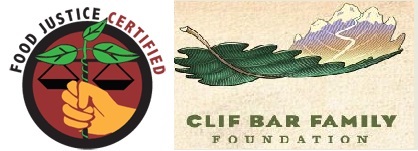

NOFA/RI Annual Meeting
See our 2014 Annual Report here as presented at our 2015 Winter Conference.
Potluck Lunch
See the Conference schedule here.
Workshops

Jeff Lowenfels
Jeff Lowenfels, noted author, lecturer and founder of Plant a Row for the Hungry
Teaming With Microbes: The Soil Food Web
The soil food web is a complex ecosystem responsible for plant nutrition and soil structure. Its operations are key to all farming activities. Jeff Lowenfels will transform your thoughts about the operations of the soil food web. He will show you why you should be teaming with microbes and how to do so in your everyday operations. Jeff’s explanations are renowned for their clarity and humor.
Teaming With Nutrients, Horton Heard a Who and You Should Too
In a fantastic confluence of cellular biology, chemistry, botany and Dr. Seuss, Jeff delves into how plants take up and utilize nutrients. He will share why plants need what they need, and increase your wonderment for the complicated, elegant machines we know as plants.
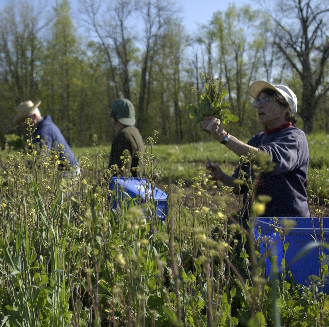
Elizabeth Henderson
Elizabeth Henderson, experienced organic farmer and advocate of Peacework Farm and the Agricultural Justice Project
5 Steps to a Food Justice Farm
Raising good food in our economy isn’t easy. You care for your soil, your crops and animals, and you bring food to your community at the best prices you can while striving to make living wages for you and your staff. Join the movement of family-scale farms who following Food Justice guidelines and demonstrate to your customers and staff that you follow best practices when it comes to running a fair and safe business. Elizabeth Henderson will guide you through the pricing, safety, conflict resolution and employment policies that are the foundation of food justice. Learn how to become a Food Justice Certified farm.
Other speakers will share their experience on how healthy soils and pollinators increase crop yields.
Farming with Nature: Improving Soil Health on Vegetable Farms
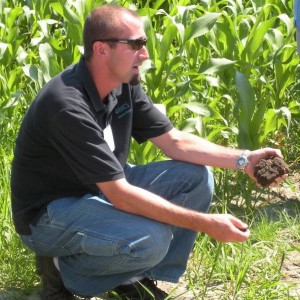
Ray Covino
Ray Covino, District Conservationist, USDA NRCS, CT office
Farmers who grow vegetables, fruit and field crops can improve their soil’s capacity to function as a vital living system that sustains plant, animal and human health. Soil health expert Ray Covino will cover the economics of soil health, the benefits of deep zone tillage and cover crops for soil health.
Healthy soils rich in organic matter will drain better, offer greater disease resistance and have better water-holding capacity during droughts. Healthy soils are important to farmers’ bottom lines and gardeners’ kitchen tables.
Ray’s presentation will describe common properties and challenges of agricultural soils. Learn the many benefits of improved soil health including a reduced need for amendments and slow release of nutrients. Ray will discuss cultural practices in the Soil Health Management System that include cover cropping, reduced tillage and organic pest management. This system offers Best Management Practice (BMP) implementation tools appropriate to each type of production (vegetable, orchard, livestock, nursery, landscaping or sod).
See Ray’s presentation here.
Managing for Soil Health begins with a Soil Health Assessment

Eric Boettger
Eric Boettger, Resource Conservationist, USDA, NRCS, RI office
Healthy soils optimize the physical, chemical and biological properties of soil. The Cornell Soil Health Assessment offers landowners the opportunity to make informed decisions to improve the biological, chemical, and physical properties of soil over time.
The Cornell Soil Health Assessment can help identify soil constraints such as:
- Low organic matter content
- Soil compaction
- Decreased infiltration
- Reduced water holding capacity
Reports include recommended management approaches to address soil constraints such as:
- Methods to increase Organic Matter (manure, compost, green manure and/or crop residue)
- Tillage Methods (Deep Tillage, Reduced Tillage, No-till and/or Zone Tillage)
- Crop Rotations
- Management for soil constraints (aggregate stability, organic matter content, water holding capacity, pH and/or nutrients)
- Maximizes use of natural, renewable and on-farm inputs.
See Eric’s presentation here.
Welcoming Pollinators to your Farm and Garden

Gary Casabona
Gary Casabona, Biologist, USDA NRCS, RI office
Gary will discuss the creation or enhancement of pollinator habitat through establishment of herbaceous and woody species of highest value to pollinators. The role of specific plant species as providers of pollen, nectar and nesting sites will be covered. Learn about site preparation techniques prior to seeding. Insect and bumblebee life history will be covered. Learn about many other wildlife species including migratory songbirds that also benefit from pollinator-friendly plants. Learn more about Gary’s work with pollinators here.
Woodlot and Forest Management Opportunities
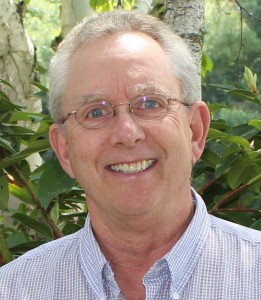
Chris Modisette
Christopher Modisette, State Resource Conservationist and State Forester, USDA-NRCS, RI office
Over 75% of Rhode Island’s woodlands are owned by private landowners. The majority of woodlots are between 1 and 9 acres. RI NRCS office offers technical support for forestry, wildlife habitat, and water quality for smaller-scale forest landowners in RI. NRICD partnered with public and private forestry agencies throughout the state to host a series of field workshops that emphasized the importance of forest management with excellent results. Learn more about forest conservation in RI, what works and doesn’t work and hear opportunities for woodlot and forest owners.
GMO Labeling Legislation Efforts in RI, MA & CT
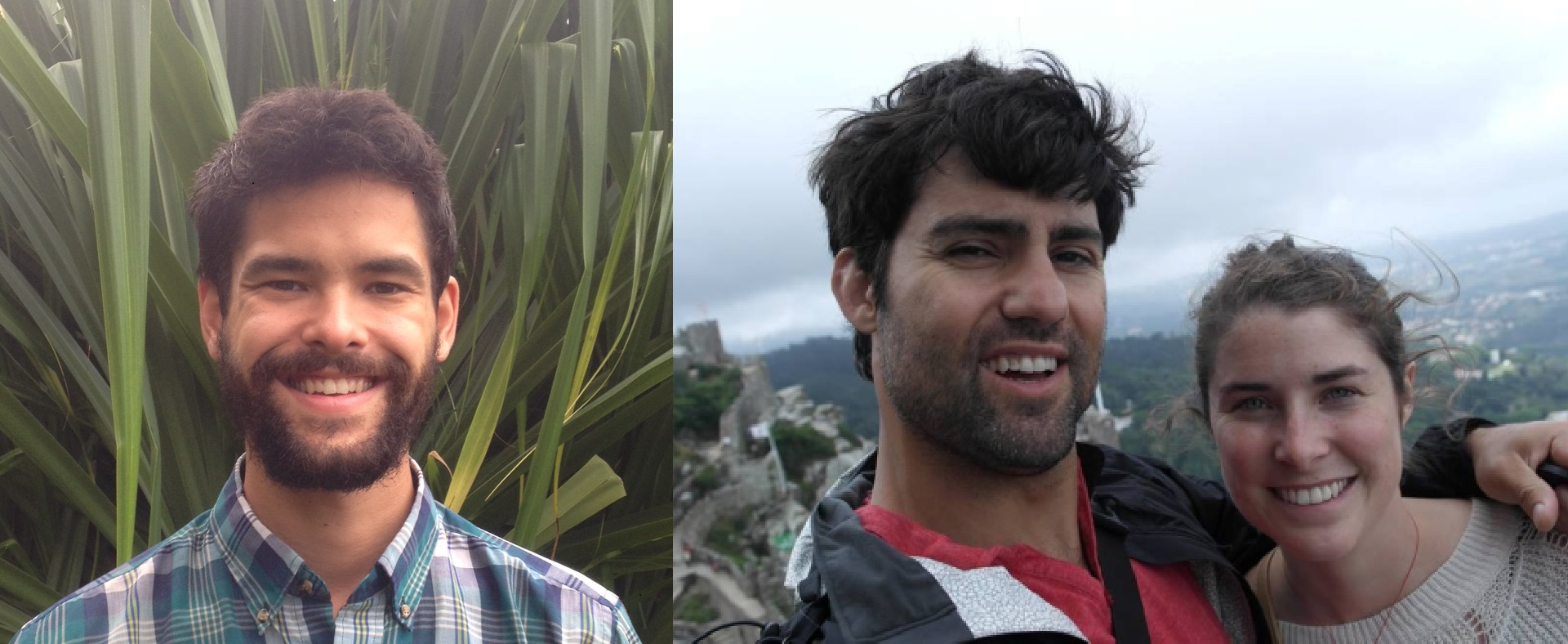
Martin Dagoberto, Michael Liberatore and Liz Guardia
Martin Dagoberto, co-founder of Massachusetts Right to Know GMOs and Citizens for GMO Labeling (a national non-profit)
Michael Liberatore and Liz Guardia, leaders of the newly formed grassroots coalition, Rhode Islanders for GMO Labeling.
How I Got Started in Organic Farming
A panel of Rhode Island farmers will describe their successes and challenges.
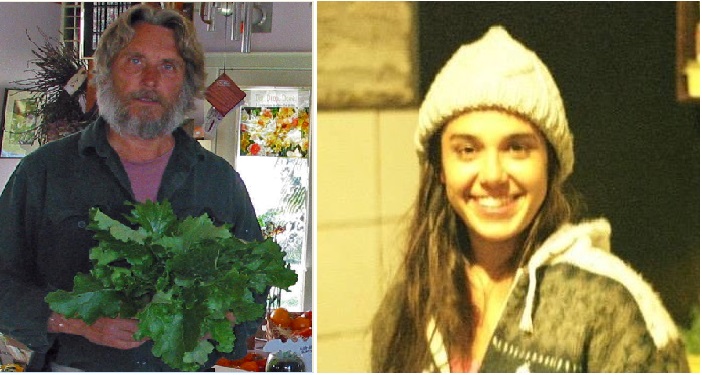
John Holscher of the Good Earth Organic Farm & Gardening Center and Camille Abdel-Nabi of Little River Farm
Thank you to our generous Conference sponsors: Farm Credit East (farmcrediteast.com), the Agricultural Justice Project (agriculturaljusticeproject.org), the Clif Bar Family Foundation (clifbarfamilyfoundation.org). Hope & Main (makefoodyourbusiness.org), Equal Exchange Co-op (equalexchange.coop) and Domina’s Agway (dominasagway.com). 


Speaker Bios
Jeff Lowenfels, noted author, lecturer and founder of Plant a Row for the Hungry
Teaming With Microbes: The Soil Food Web and
Teaming With Nutrients, Horton Heard a Who and You Should Too
Jeff Lowenfels is an international proponent of Organics. He is also the award-winning author of “Teaming With Microbes: The Organic Gardener’s Guide to The Soil Food Web,” reviewed as one of the most important garden books written in the past 25 years “and perhaps ever.” Already a horticultural classic, “Teaming With Microbes” has been translated into French, Korean and Slovenian. It explains in lay terms, the science of gardening without chemicals. Jeff’s talks and consultations have converted tens of thousands to the no-chemical way to grow plants. Jeff’s latest book is called “Teaming with Nutrients: The Gardeners Guide to Optimizing Plant Optimizing Nutrition” (2013).
Lowenfels is America’s longest running columnist and popular speaker. He is a reformed lawyer; the combination of garden writing and law earning him the moniker: America’s Dirtiest Lawyer. He was once an Editor of the Harvard Lampoon, America’s oldest humor magazine, so his talks are always humorous, witty and entertaining.
Jeff hosted a statewide gardening television program and is “The Germinator” on a popular radio show. In his spare time, he lectures around the world on the science behind organics and how plants grow.
Jeff is founder of Plant a Row for the Hungry, a national program that encourages gardeners to plant one row in their gardens dedicated to feed the hungry. He is the former president of the Garden Writers of America (GWA), a Garden Writer’s Fellow and was inducted into the GWA Hall of Fame.
Elizabeth Henderson, experienced organic farmer and advocate of Peacework Farm and the Agricultural Justice Project.
5 Steps to a Food Justice Farm
Elizabeth Henderson farmed at Peacework Farm, producing organically grown vegetables for the fresh market for over 30 years. She is a founding member of the Northeast Organic Farming Association (NOFA) in Massachusetts and has been on the Board of Directors of NOFA-NY since 1989. Elizabeth represents NOFA at national discussions of organic standards and is on the Board of the Agricultural Justice Project (AJP). She chaired the Agricultural and Farmland Protection Board in Wayne County for two decades and helped organize the Domestic Fair Trade Association (DFTA).
Elizabeth has been honored by the organic industry with one of the first “Spirit of Organic” awards (2001), by Abundance Co-op with its Cooperating for Communities award (2007). NOFA-NY honored her with a Lifetime Achievement Award in 2009 and then a Golden Carrot in 2013. In 2014, Eco-Farm presented Elizabeth with their Advocate of Social Justice Award, the Justie.
Elizabeth’s writings on organic agriculture appear in The Natural Farmer and the NOFA-NY Food, Farms and Folks. Elizabeth co-authored The Real Dirt: Farmers Tell about Organic and Low-Input Practices in the Northeast and A Manual of Whole Farm Planning (2003). She was the lead author of Sharing the Harvest: A Citizen’s Guide to Community Supported Agriculture (Chelsea Green, 1999, revised in 2007). Elizabeth co-authored A Food Book for a Sustainable Harvest for the members of the Genesee Valley Organic Community Supported Agriculture Project (GVOCSA), renamed Peacework Organic CSA in 2013. Peacework Organic Farm has supplied vegetables to the 240-member CSA for 26 years.
Ray Covino, District Conservationist, USDA NRCS, CT office
Farming with Nature: Improving Soil Health on Vegetable Farms
Ray graduated from the University of Connecticut with a degree in Natural Resource Management and Engineering with a strong Ecology and Evolutionary Biology background. He has worked for NRCS since graduation as a Soil Conservationist and District Conservationist in Connecticut. Ray has helped lead the soil health movement in the Northeast and has worked with the National Soil Health Team since 2011.
Eric Boettger, Resource Conservationist, USDA, NRCS, RI office
Managing for Soil Health begins with a Soil Health Assessment
Eric Boettger is a Resource Conservationist for NRCS in Rhode Island. Eric provides assistance for the state on agronomy, grazing and soil/water quality issues. He has worked for NRCS for 10 years. Eric received a BS in Environmental Science and Management from the University of Rhode Island.
Gary Casabona, Biologist, USDA NRCS, RI office
Welcoming Pollinators to your Farm and Garden
Gary Casabona holds a B.S. in Environmental Sciences from Rutgers University, and a M.S. in Wildlife Biology from Virginia Tech. He worked for USDA-NRCS in New Jersey for 14 years before moving to Rhode Island in 2011 as the statewide wildlife biologist for NRCS. In the recent past, he was involved in native warm-season grass restorations, grassland nesting bird surveys, American kestrel nestbox monitoring and GIS modeling of wildlife habitat. Gary’s current activities include habitat management projects for New England cottontail, native pollinators, scrub/shrub nesting birds, wetland restoration, fish passage and oyster restoration.
Christopher Modisette, State Resource Conservationist and State Forester, USDA-NRCS, RI office
Woodlot and Forest Management Opportunities
Chris has responsibility for sharing in the planning, development and implementation of comprehensive soil, water, forest and resource conservation programs for the state. Previously, he was the Executive Director of the Southern New England Forest Consortium, Inc. (SNEFCI) and Director of Water Resources/Watershed Manager for the Providence Water Supply Board. Chris has served as a guest lecturer in Forestry with the Department of Natural Resources Science at the University of Rhode Island. He is a graduate of the University of New Hampshire School of Forestry from whom he received a BSF degree in Forest Management. Chris has been a member of the Society of American Foresters since 1979, and is involved on the boards of a variety of forestry and conservation organizations and advisory committees across the state and region.
Martin Dagoberto, co-founder of Massachusetts Right to Know GMOs and Citizens for GMO Labeling (a national non-profit)
GMO Labeling Legislation Efforts in RI & MA
Martin Dagoberto utilizes his degree in biotechnology/genetics from Worcester Polytechnic Institute to advocate for common sense transparency in food labeling and sustainable food production. A long-time advocate for social and environmental justice, he also spends time being, growing and making medicine, homesteading, and connecting with allies toward cultural regeneration and reconnecting with Nature.
Michael Liberatore and Liz Guardia, leaders of the grassroots movement Rhode Island for GMO labeling.
GMO Labeling Legislation Efforts in RI &MA
Mike and his partner Liz live in Providence, RI. Mike owns CrossFit gym and Liz is a Yoga Teacher. Learn more at righttoknowri.org and facebook.com/RighttoKnowRI. Through their world travels, Mike & Liz have realized that America’s food culture has some major flaws, which could lead to the many illnesses plaguing Americans. Mike & Liz study permaculture and biodynamic farming. Their wish is to help our community make healthy food choices for their bodies, families and environment.
John Holscher, farmer and co-owner of the Good Earth Organic Farm & Gardening Center
How I Got Started in Organic Farming
John and his wife Joyce run The Good Earth Organic Farm & Gardening Center, Rhode Island’s only full service Certified Organic Gardening Center and Organic Farm. you’ll find everything to meet your organic gardening needs and our own delicious and nutritious Organic produce.
John grew up in a family with a long history in horticulture and was out in the greenhouse with his father and grandfather at a very early age growing and gathering knowledge that would eventually lead to his interest in Organic Farming. John and Joyce started the Good Earth in 1995 growing and selling ornamental, herb and vegetable plants. They began growing and selling their produce in 2008.
Camille Abdel-Nabi, Beginning Farmer at Little River Farm
How I Got Started in Organic Farming
Based on a love for vegetables and desire to work outdoors, Camille became interested in farming as a college sophomore. In the summer of 2013, she worked as an apprentice at Greenview Farm in Wakefield, RI and immediately knew that farming was to be her career. During that summer at Greenview Farm, Camille met her partner Bob Payne. That fall, they started Little River Farm, a 3–acre vegetable farm in Exeter, RI. Camille and Bob use organic and sustainable practices to grow a wide range of vegetables and herbs year-round.
These great speakers are brought to you in part by our generous sponsors Farm Credit East (farmcrediteast.com), the Agricultural Justice Project (agriculturaljusticeproject.org), the Clif Bar Family Foundation (clifbarfamilyfoundation.org). Hope & Main (makefoodyourbusiness.org), Equal Exchange Co-op (equalexchange.coop) and Domina’s Agway (dominasagway.com). 


OLC Continuing Education Credits
Continuing Education Credits are available for NOFA Accredited Organic Land Care Professionals. Print and bring your reaccreditation form for speaker signatures, available here.
Exhibitors
Exhibitor spaces are available. Exhibitor booths include a 6′ table, two chairs and Conference admission for up to two people with your company or organization. Please bring a potluck item to share for lunch.
| Vendors (selling) | $100 |
| Non-profit organizations (not selling) | $50 |
If you wish to exhibit at the Winter Conference, print the Exhibitor Application here. Mail with your check to New Urban Farmers, P.O. Box 1445, Pawtucket RI 02860. Email questions to Bleu Grijalva at newurbanfarmer@gmail.com or call (401) 338-8163.
Potluck Lunch
Please bring 5-8 servings to share. Refrigeration will be available. Suggested offerings by last name:
- A – E Snacks/Appetizers
- F – L Salads/Sides
- M – R Hot or Cold Entrées
- S – Z Desserts
Registration
| Adult (Member / Non-Member) | $50 / $60 |
| Beginning Farmer (Member) * | $25 |
| Workshare Volunteers (Member) * | $30 |
| Senior / Student (Member / Non-Member) | $25 / $30 |
| Under 18 | Free |
* Beginning Farmer Scholarships are available for reduced admission as Workshare Volunteers. Beginning Farmers and Workshare Volunteers seeking reduced admission must be current NOFA/RI members. To apply for a Beginning Farmer Scholarship, email Bleu Grijalva at newurbanfarmer@gmail.com or call (401) 338-8163.
| Register Here |
Become a Member or renew your Membership here.
Volunteers
Volunteers can help with registration, set up, clean up and logistics. Volunteers seeking reduced admission must be current NOFA/RI members. To learn more or to volunteer, email Bleu Grijalva at newurbanfarmer@gmail.com or call (401) 338-8163.
Sponsorship
This conference is made possible by our generous sponsors Farm Credit East (farmcrediteast.com), the Agricultural Justice Project (agriculturaljusticeproject.org), the Clif Bar Family Foundation (clifbarfamilyfoundation.org). Hope & Main (makefoodyourbusiness.org), Equal Exchange Co-op (equalexchange.coop) and Domina’s Agway (dominasagway.com). 


Learn about Sponsorship and Marketing opportunities here.
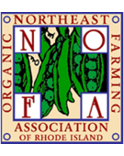
Leave a Reply
Want to join the discussion?Feel free to contribute!